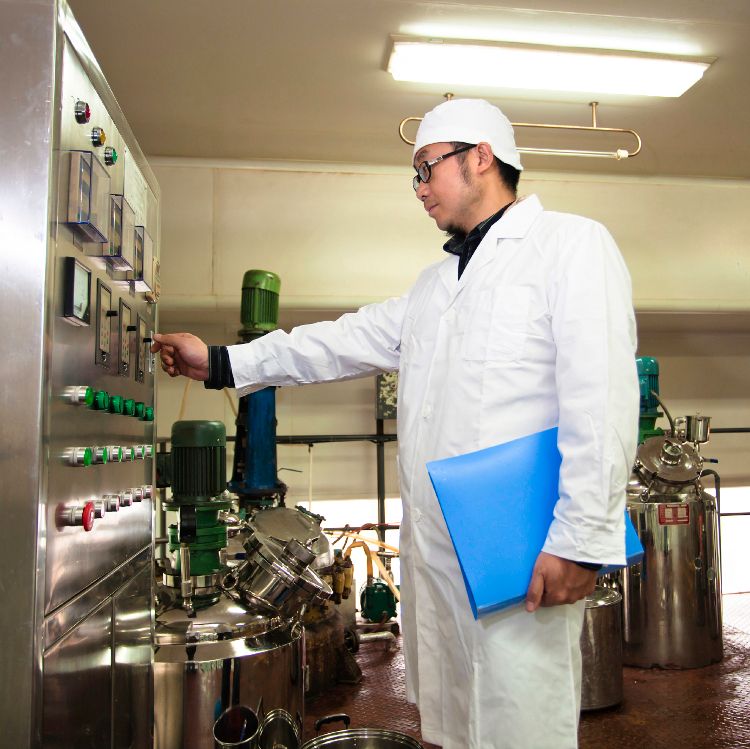Global Retailer and Manufacturer Alliance conducting pilot audits in October to trial run its audit process
GRMA is about to conduct pilot audits, an important step toward becoming fully operational.
Photo © iStockphoto.com/4X-Image

The Global Retailer and Manufacturer Alliance (GRMA) is preparing for pilot audits that will take place in October in order to test the audit process that will eventually be conducted by qualified certifying bodies to ensure manufacturers are meeting GRMA standards for good manufacturing practices (GMP). The alliance is a member-based non-profit organization started in January 2018 that consists of retailers, manufacturers, trade associations, certification bodies, and other stakeholders. GRMA created uniform GMP standards across multiple product categories, including dietary supplements, cosmetics/personal care, over-the-counter drugs, and medical devices. Uniform standards ensure the integrity of the products stocked by retailers. The upcoming pilot audit is a major step toward becoming fully operational, which GRMA expects will be in 2019.
Uniform quality standards also address issues of audit fatigue for manufacturers. Often, retailers will audit manufacturers whose products they wish to stock to ensure they meet their standards, and standards can vary depending on the retailer; as a result, manufacturers often find themselves needing to meet a different set of standards on different occasions. GRMA’s uniform standards act as a single standard that can be used cross-retailer. As Randy Slikkers, CEO of GRMA, explains to Nutritional Outlook, “There was one manufacturer that had over 80 audits in the span of a year, so audit fatigue was a big concern of the manufacturers.”
While GRMA has only been a non-profit organization since January 2018, the group says it has been developing its standards since 2014 with input from stakeholders across all the relevant industries. Slikkers explains that the standards were developed by NSF International (Ann Arbor, MI) in partnership with the American National Standards Institute (ANSI)-a process that requires consensus from a balanced group of stakeholders. The audit scheme is owned by GRMA, which vets prospective members so they meet the prerequisite standards.
In order to thoroughly test the audit process that has been created, the pilot audit will consist of three teams conducting their own separate audits. Each audit team consists of a retailer, a manufacturer, and a certifying body, as well as a observers from GRMA and ANSI. One team will consist of Gemini Pharmaceuticals (Commack, NY), Walgreen Boots Alliance (Deerfield, IL), and UL (Northbrook, IL). Another team will be Pharmavite (Northbridge, CA), Costco (Issaqua, WA), and USP (Rockville, MD). The last team will be NSF, H-E-B (San Antonio, TX), and a yet undetermined manufacturer.
“We’ll test the training, test the platform [called ReposiTrak Inc.], and we’ll test the entire process,” explains Slikkers. “With three separate pilot teams, we will be able to compare and contrast throughout the process, from the days of the audit training all the way through when the audits are completed. We will talk to each member of the audit teams, to each audit team as a group, and then will talk to the larger group all together where we then determine the lessons learned and where do we need to improve and where do you feel like there were gaps.”
The pilot audits will be conducted for the dietary supplement standards, but the audit process will be the same across all category standards so the different standards will not influence how the audit is conducted. For example, auditor training takes place over five days, and then the certifying body that is qualified to conduct audits is trained on the specific standards. GRMA intends to use the month of October to conduct the audits, November to distill everything learned from the pilot audits and incorporate changes, and then in December release the schedule for auditor training, which will take place every month for the first six months and then be conducted on a quarterly basis.
Prinova acquires Aplinova to further increase its footprint in Latin America
April 7th 2025Prinova has recently announced the acquisition of Brazilian ingredients distributor Aplinova, which is a provider of specialty ingredients for a range of market segments that include food, beverage, supplements, and personal care.










